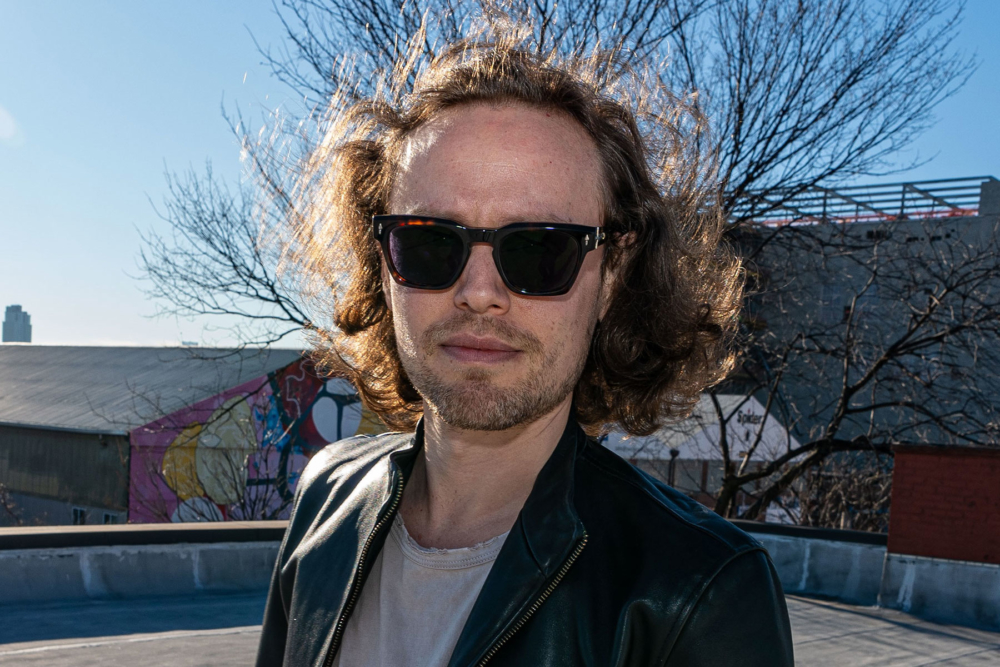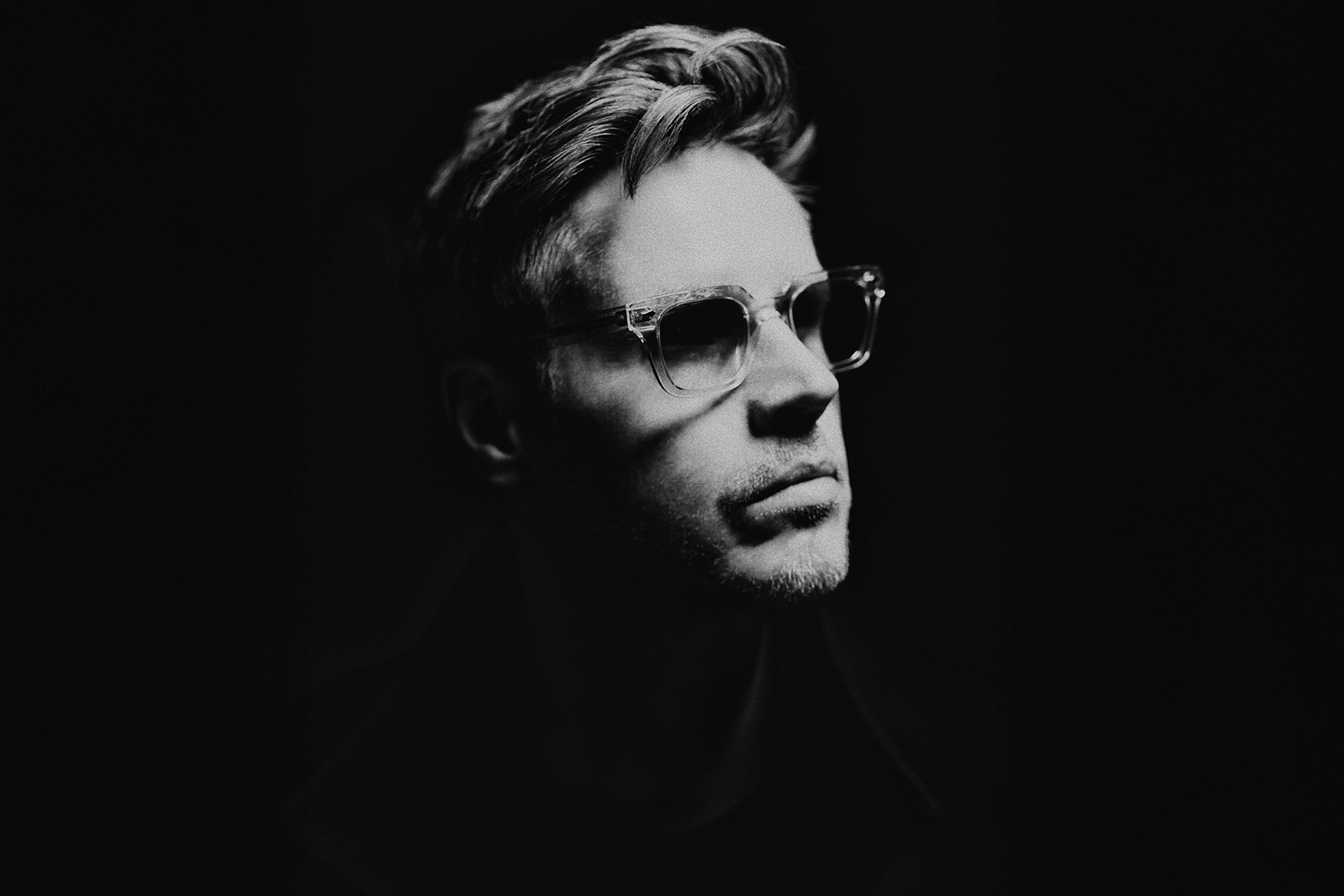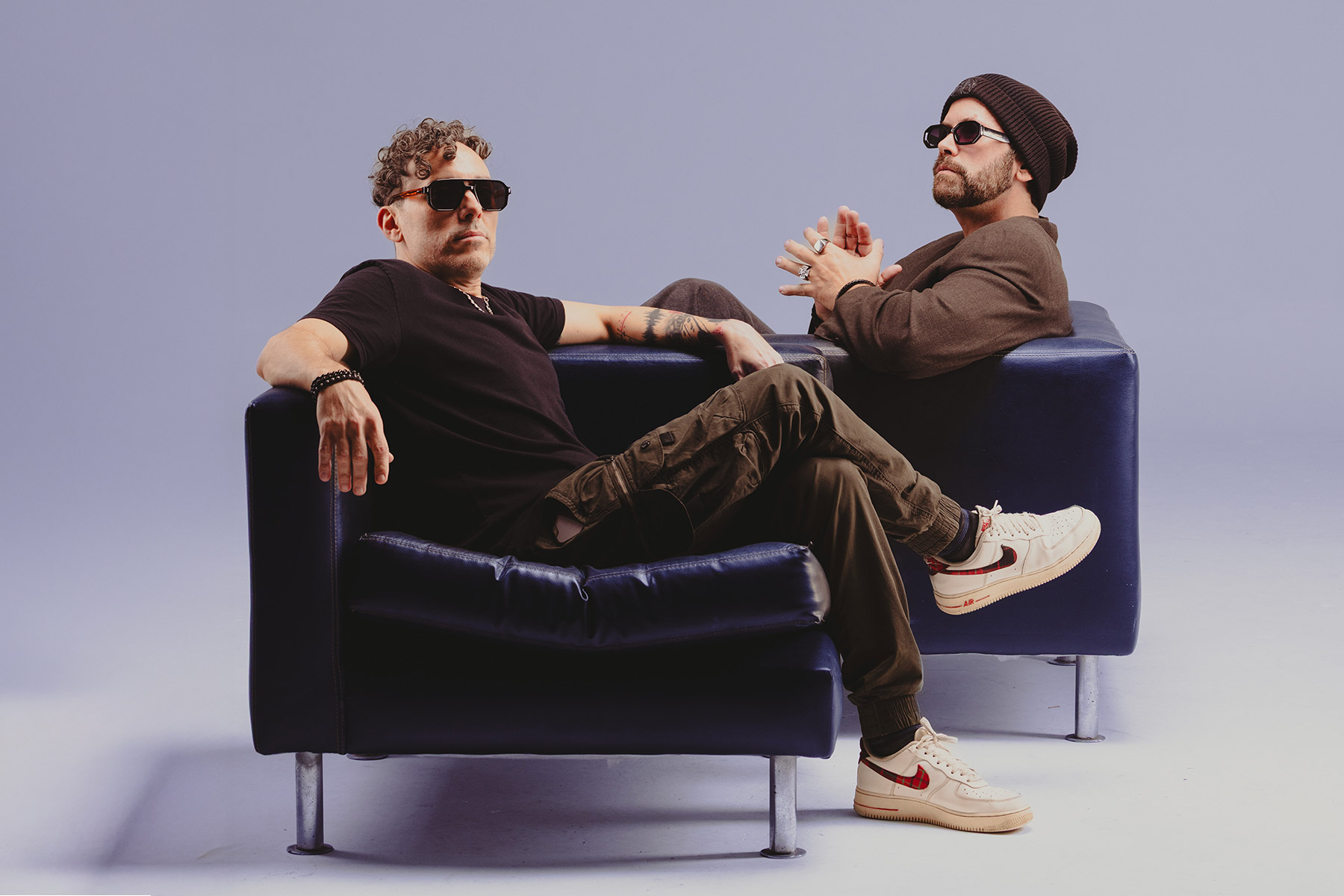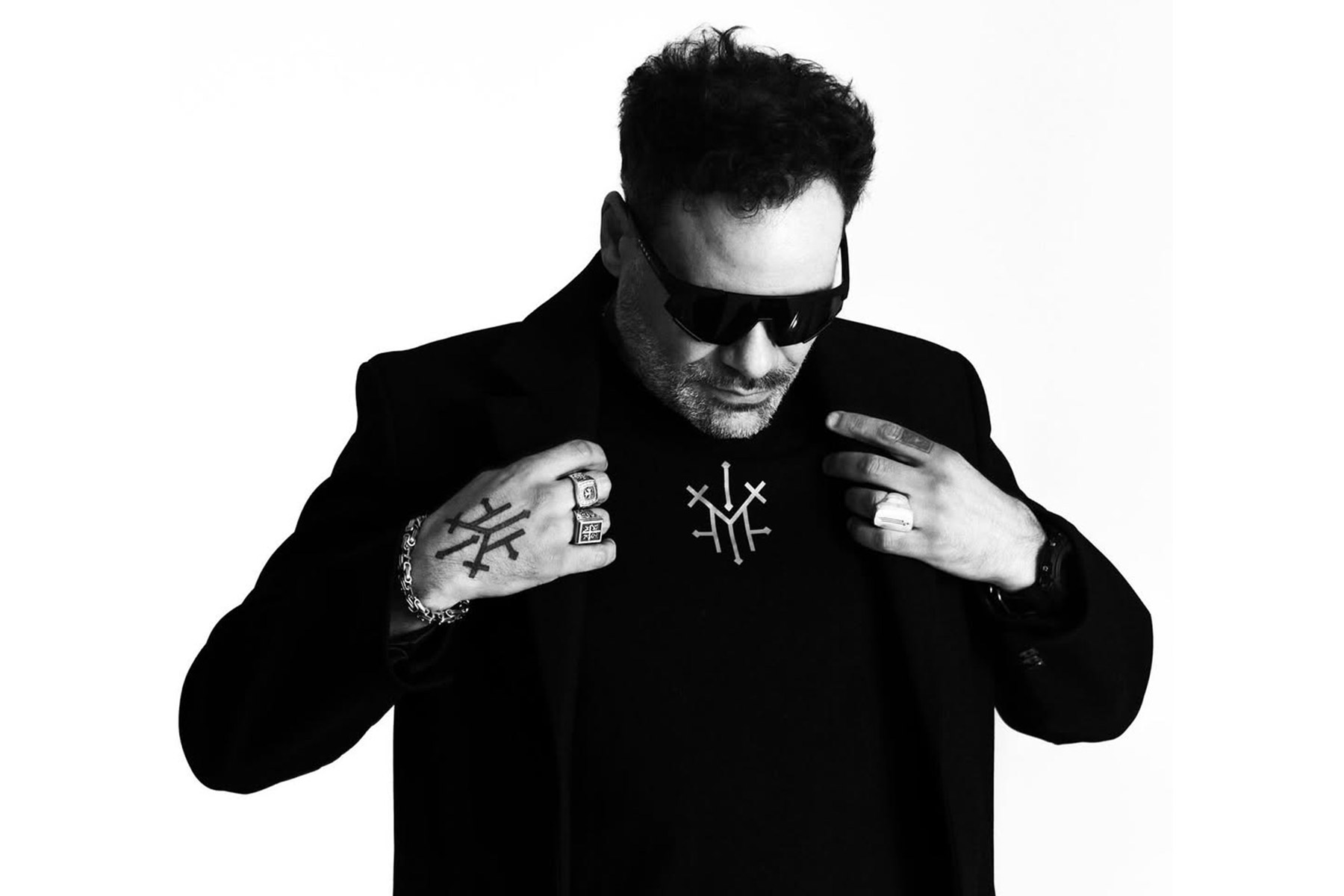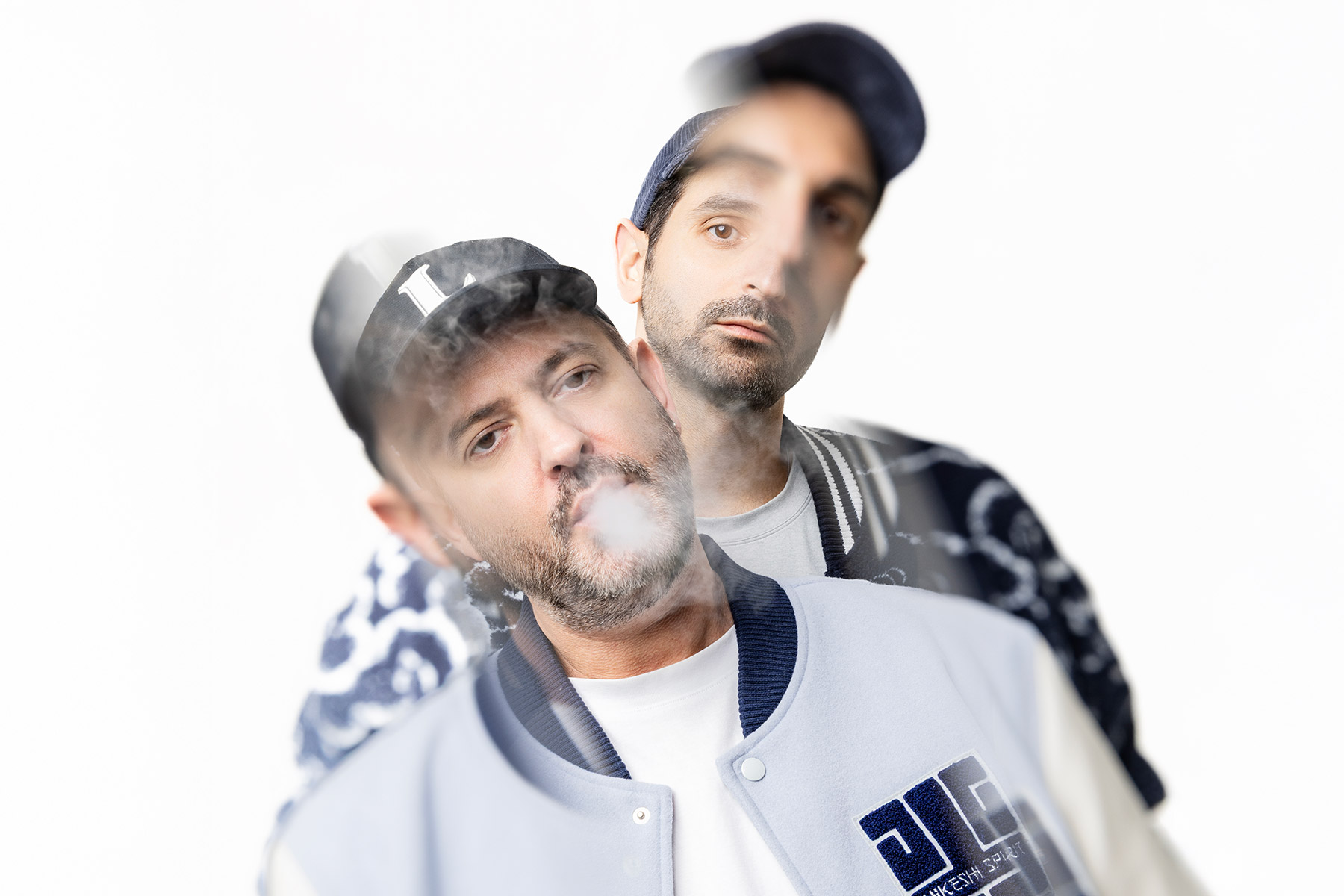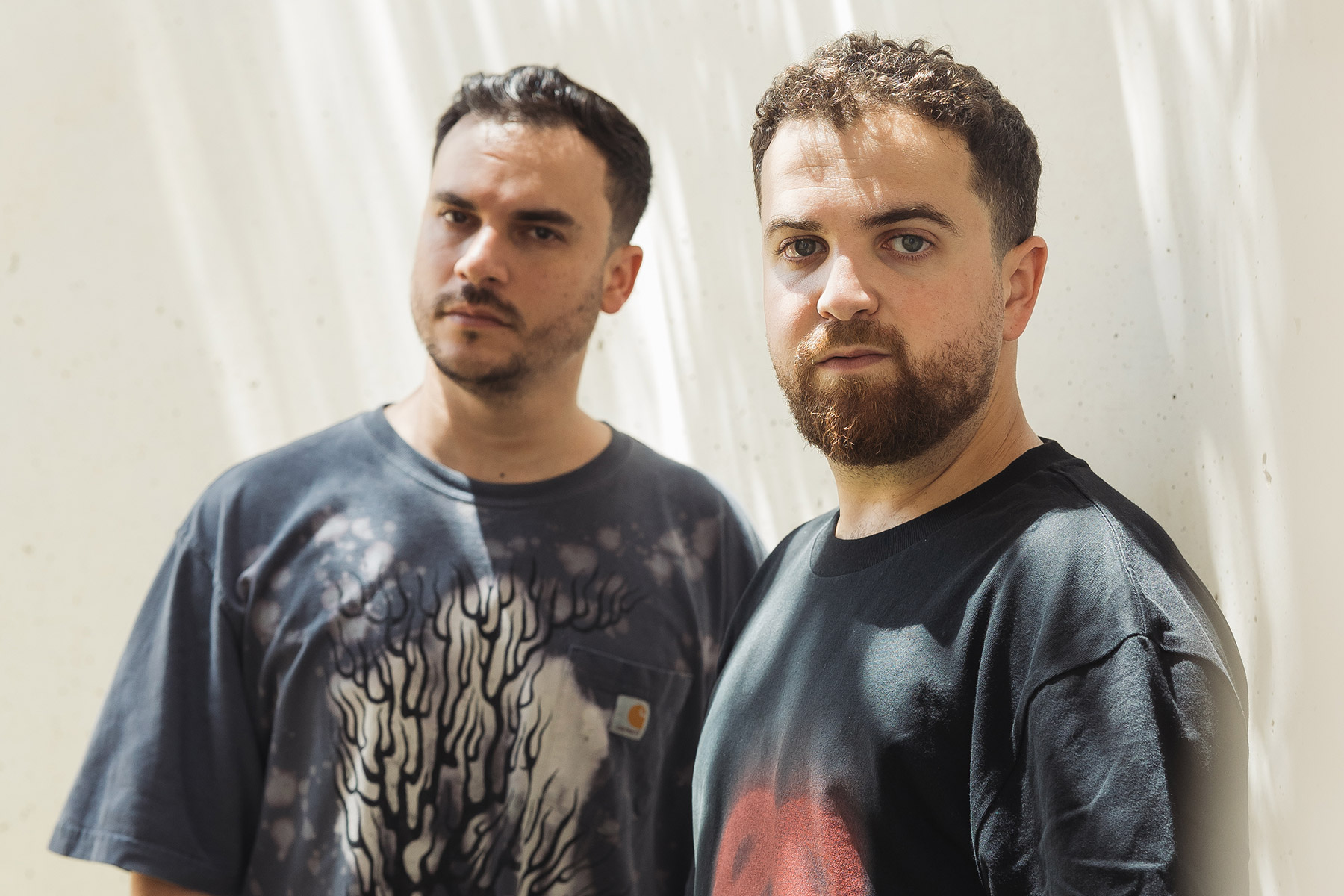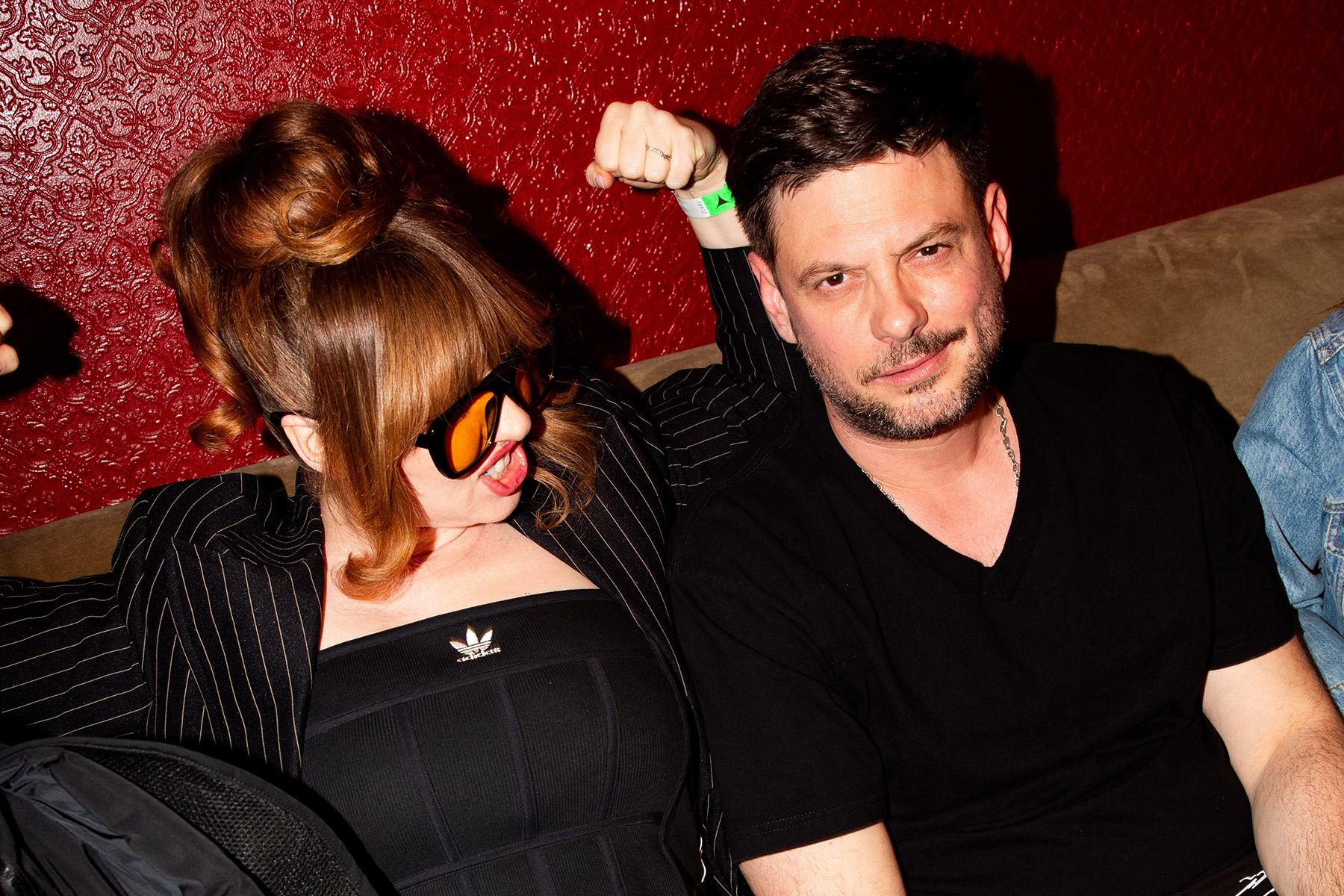J Gabriel is an electronic music producer based in New York City. He has received support from various corners of the house music scene, and his productions are played in clubs worldwide. Collaborations with artists like Mike Shannon, Shaun Reeves, Chez Damier, Thomas Melchior, and others showcase his versatile talent.
Photo credit: J Gabriel – Facebook
In addition to his work in the dance music realm, J Gabriel has formed a unique partnership with dub reggae pioneer Scientist, exploring the classic roots sound. He is also the driving force behind Onysia and Convent Records, aiming to create and curate underground electronic music of the highest quality.
EG had the opportunity to interview J Gabriel, delving into his journey into electronic music, his approach to collaboration, the influence of diverse musical genres on his creative vision, and his role as the founder of Onysia and Convent Records.
EG: Hi J Gabriel, welcome to EG! Where are you right now?
J Gabriel: It’s great to be in touch. I’m currently at home in Brooklyn, in the studio. It’s a cold, sunny winter day, perfect for recording! It’s my favorite.
EG: How did your journey into electronic music begin?
J Gabriel: As a teenager, I got into rap music and became particularly interested in the production aspect. I was into a lot of West Coast stuff, like G-Funk and groovy hip hop sounds that were popular in the 90s. So I started out wanting to make beats, and that eventually led me to explore other genres, mainly House music, a few years later.
EG: You’ve collaborated with artists like Mike Shannon, Shaun Reeves, and Chez Damier. Can you share your approach to collaboration and how it influences your creative process?
J Gabriel: For me, it’s first about the energy of the collaborator and how their work inspires me. I consider what they represent musically and their vibe. I try to channel that and direct my efforts accordingly. Collaborating is a bit more intense and has higher stakes in a sense, but in a good way.
When working with someone else who has a different perspective and evaluates things through a different lens, it feels more focused and intentional. It’s different from when I’m alone in the studio and guided by my own instincts. In these collaborative situations, I put a lot into the process, and there’s a greater emphasis on using specific techniques. It feels more like a job, but in a positive way, so I treat it as such. I guess it’s similar to how I approach remixes as well, now that I think about it.
EG: Your portfolio spans across various electronic music genres, including minimal house and reggae. How do diverse influences shape your creative vision, and how do you maintain a cohesive style amidst this diversity?
J Gabriel: We’re already dealing with such a diversity of influences in most modern music, especially House music. So heavy swinging drums which come directly from jazz, deep hypnotic dub and reggae basslines, Latin percussion, all these diverse elements are already an important part of the House music lexicon, right?
I listen to tons of bebop and Latin jazz in my downtime, actually, some dub. Also hip-hop and pop music. I’m a big Apple Music Radio 1 guy lately and really enjoying that. Which is funny to me because a few years ago that would have been unthinkable.
It’s great to continue to grow and develop new interests and appreciation. At the same time, my favorite all-time music does not change. The question of cohesiveness is interesting. I think it can come from a number of places. For me, a specific tonal palette, which is quite personal, being drawn to a certain character of sounds and a love of crafting sonics, helps a lot. This can come down to studio techniques as well. Like, I’m still almost always sequencing drums with the old MPC 3000, and that machine has a particular feel to it when you swing the drums. But really, it’s in your mind more than equipment, and we are making decisions that can contribute to a sense of cohesiveness, or not. I don’t really think about how new projects should or would resemble older projects, just that I want to be better than my last endeavors, to evolve, and to capture good ideas. When it happens or however it plays out, it’s not necessarily deliberate but a byproduct of approaching music a certain way with a particular desired aesthetic/outcome, I think.
EG: As the founder of Onysia and Convent Records, how do you approach the curation of underground electronic music?
J Gabriel: Just being a naturally curious person, where music is concerned, is probably the main driving force. So always digging and loving the process of finding undiscovered jams. There’s nothing quite like connecting with someone else’s ideas, experiencing their conception of what this thing can be and what it triggers in parts of your mind and imagination, and loving it. It speaks to you. There are cuts that immediately stand out, certain producers who you identify and think, “OK, this person really has something cool going.”
And then it’s just a matter if the music fits into the labels’ sound since both Onysia and Convent are still a bit specific things. Obviously, I love all different types of styles, but it’s nice to curate a sort of specialized identity for the labels.
Then there is the question if I can get them on board (laughter). But we’ve been having good luck with that so far.
“I don’t really think about how new projects should or would resemble older projects, just that I want to be better than my last endeavors, to be evolving, and capture good ideas”
EG: What do you look for in artists and their productions when deciding to feature them on your labels?
J Gabriel: It’s an emotional thing you sense. You can hear some amount of originality and then the feeling that it’s real and authentic and interesting. A bit of mystique too, perhaps. And all of my favorite producers have quite a signature sound and distinctive personality, which makes it special and singular. It often comes across as effortless, but the intelligence a person can imbue in their music with a lot of hard work developing a technique over time is sometimes breathtaking. Akufen comes to mind as a perfect example of this, who we put out as one of our earliest releases, the ultimate example, maybe, haha. But yeah, what can create those extra special memorable moments on the dancefloor. That’s what I’m looking for.
EG: How has your sound evolved over the years, and what factors contribute to the continuous evolution of your musical style?
J Gabriel: Getting better at translating the sounds in my head – still working on that (laughter). Or capturing the music that exists in the imagination could be a better way of thinking about it. It might seem odd, but those are really just beginning to align. Even stylistically.
We can go to the club and hear all this stuff and want to make it a bigger influence on our own creativity, but for me, it took some time to integrate the various elements that I love best. I guess there are just certain foundational elements to how we approach making music; it’s not a fully conscious thing.
It has to come from a real place inside. You can hear a reggae drummer and totally love the beat, and you might be an amazing drummer yourself, but it doesn’t mean you can recreate that via emulation. The authority and swagger and nuanced understanding have to come from a deeper part of you to pull it off.
Practically speaking, more patience in the studio, not feeling as much in a rush, has been a big factor in getting better results. Becoming a stronger listener, also being more willing to redo things that could be improved rather than feeling attached.
Production quality I’ve always really cherished and strive for that special sound, there’s still a gap between what I’m getting and where I’d like it to be, even though that’s also come a long way, it’s a journey for sure, and maybe with no actual final destination haha.
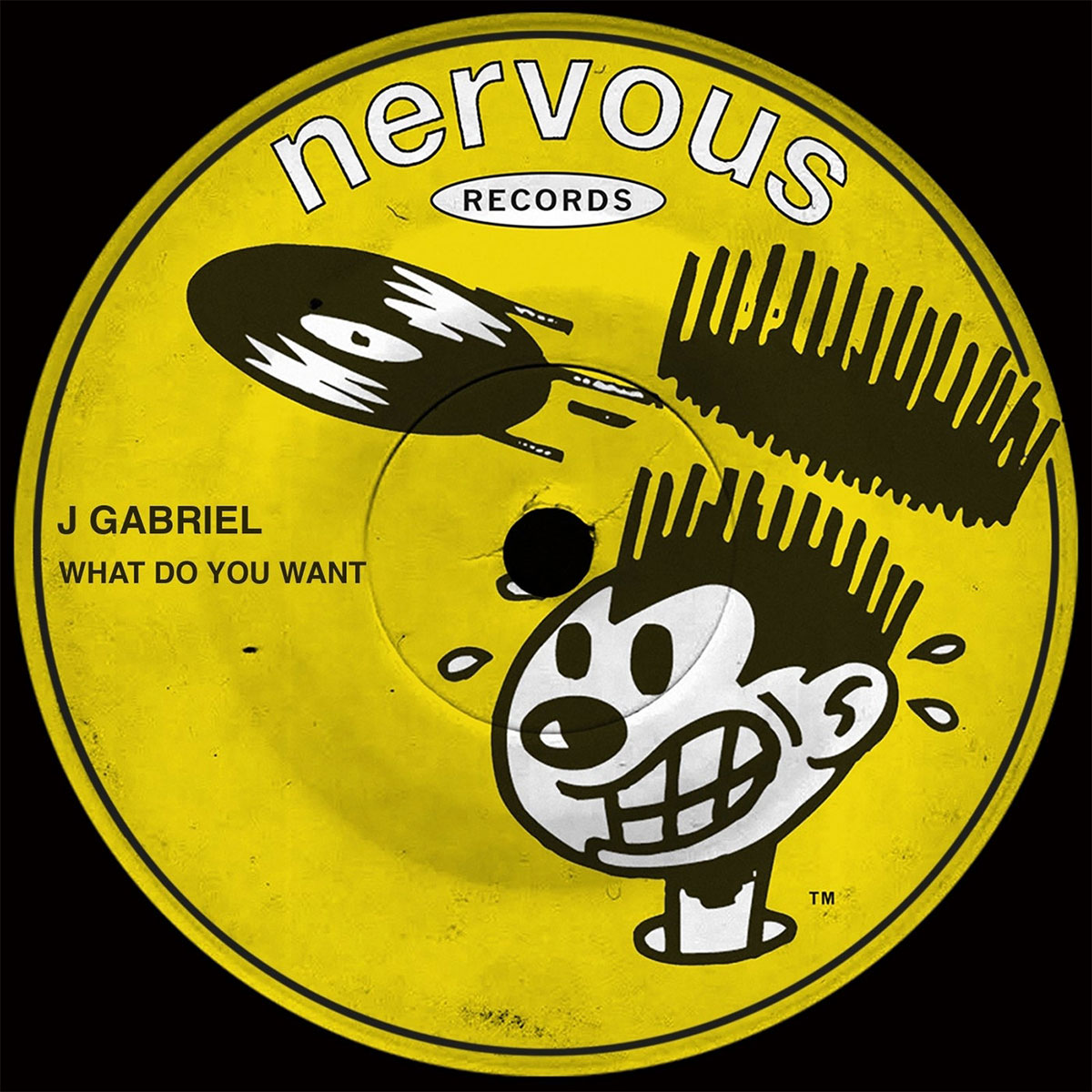
EG: You recently released a DJ mix on our EGLO series. Can you walk us through the concept behind this uniquely eclectic mix?
J Gabriel: It was initiated by my good friend and colleague Dan Berg, his Fireberg release ‘Myami Rain’ which I’ve done a remix on. He offered a challenge of sorts, to do a multi-genre mix and include parts of the Myami Rain release.
It’s such a cool genre-bending song, strikes me as a bit of a UK sound in the way that they do fusion of RnB, soul, and electro or these different cross-genre things that come across as really natural. I’ve been spending a lot of listening time outside the club music world recently and always collect music across the board, so I thought it was a great opportunity to showcase some of that. It’s really cool to attempt to present something under a “good music is good music” ethos.
Songs from different genres and also different eras with common underlying threads in the context of a mix, it’s just a different type of interesting thing. So yeah, the mix does go from dub to rap to drum & bass, even pop, some music from 30 years ago, and some brand new.
EG: With advancements in technology, including AI, impacting various industries, how do you see it influencing electronic music production? Have you experimented with AI tools in your creative process?
J Gabriel: I have used AI tools in my creative process, but so far only for album art. I actually used this nifty ArtBreeder platform to come up with the cover art for the Specimen EP. It will be a 12″ J Gabriel single with mixes by Bruno Pronsato and Thomas Melchior, releasing on Convent later this year. With ArtBreeder, you feed the AI various images and keywords/descriptors, and it comes up with sometimes crazy and interesting stuff. I then hand it off to an artist to refine the design and make it look smoother for print, since the AI tends to have some graininess or go in a direction that needs more work. It takes time and experimentation with the platforms to achieve cool results, based on my experience.
As for influencing electronic music production, I’m not sure. It could be very useful to feed stems into AI and get new ideas that way. I can see it being particularly effective for arrangements. Often, we’ve already spent a lot of creative energy on composing parts and sound design, so it would be great to throw a bunch of loops at an algorithm and see how AI combines our work into configurations we wouldn’t have thought of. It would also be great to play a bunch of unquantized keyboards and have the AI “sample” them and put them into a more sequenced feel, instead of doing it manually. Personally, I prefer to focus on the exciting benefits of new technologies. I think the media and people with concerns tend to lean towards negative conversations about these things.
There’s also the idea that AI can create and clone the Beatles’ sound or make fake Drake music, haha. But no, that’s not happening. It’s basically remixing what already exists. However, there is a lot of potential for great and interesting things depending on how it’s curated.
EG: Being based in NYC, a city with a rich musical history, how has the local scene influenced your work? Are there specific aspects of the NYC electronic music scene that you find particularly inspiring?
J Gabriel: Yeah, as you say, the history is here and some of the people who lived it are here as well. Just the other day, I met a guy who was one of the main Studio 54 residents when he was 19 or 20 years old. I heard some wild stories! Haha. So yeah, you definitely feel the legacy. So many foundational and groundbreaking developments happened here, creating a certain larger-than-life energy in New York.
The scene right now is inspiring, with plenty of new, very well thought out venues opening up in the past few years. These venues create a lot of little niches that are almost like worlds unto themselves. Of course, excellent talent is coming through on a regular basis, which is another big benefit of being here. New York probably has the biggest scene in North America, so there’s a lot to explore. I think all of this affects what I do in many ways. On one hand, this is one of the most competitive places in the world, but calling NYC home and feeling grounded here, it’s more like you become part of the city and are actually thinking more about how to represent and live up to the high bar that has been set. So that makes you a better artist, feeling part of such a strong identity, community, and legacy.
“More patience in the studio, not feeling as much in a rush, has been a big factor in getting better results”
EG: Balancing your role as a DJ and producer with label management can be demanding. How do you manage your time and creative energy effectively to excel in both aspects of your career?
J Gabriel: It’s a lot. There can be a synergy to it too. Taking a break from the studio to work on A&R, album art, preparing the next releases, or whatever needs to be done. It’s a logical way of working. Of course, it’s impossible to be at a creative peak all the time. I feel it’s true with DJing as well. You can get sort of desensitized to things in life, amazing music included. The whole “nice one” mentality, a cornerstone of DJ speak haha. Part of me cracks up when I hear “nice one” and part of me cringes. Because it sort of downplays the importance of expressing excitement about this thing we all love so much, kind of reflects this overstimulated/oversaturated environment we’re in, where instant gratification is a couple of clicks away and the next seemingly amazing musical discovery is maybe more important than what’s right in front of you at a given moment. Nothing against anyone who actually says “nice one” haha. But let’s actually have a conversation about this. Are we actually excited and fully appreciating what we have here. About the studio, my philosophy has always been that it’s best to hit it hard when you’re inspired, or at least have built up enough to make the time invested worthwhile. If you’re working on music, whether it’s DJing or producing, and it feels like just going through the motions, I see a danger there – to get used to that and end up putting forward what is not really your best work with real meaning, with real enthusiasm. Also, being quite active doing Yoga, cycling, and other wellness-oriented hobbies helps a lot. Anything that helps melt away stress and enhance focus/baseline energy levels, I find invaluable for my work and getting better results in the studio.
EG: In today’s digital age, social media plays a significant role in the music industry. How do you navigate social platforms to connect with your audience, fellow artists, and industry professionals while maintaining an authentic online presence?
J Gabriel: Yeah, that’s a difficult one. Personally, I haven’t fully embraced it. It’s a bit strange. In some sense, I love it and it’s totally amazing, but in another sense, it feels empty and contrived. As we all know, it’s a peculiar phenomenon.
In some respects, the experience is still quite primitive and focused on generating addictive consumption behaviors. I do have an Instagram and Facebook, and technically a Soundcloud too, but it never gets updated haha. I should work on that, maybe.
I’m a bit skeptical about assumptions that this new direct connection between artists and audiences is the best way. I don’t feel that it’s entirely true. I do find certain thriving communities that it’s great to participate in, especially those curators who cover the scene and constantly work to stay at the forefront of what’s happening and share with us. But it all starts to feel a bit like trying too hard to sell something that doesn’t need a hard sell. Good music, good parties, people are thirsty for it, always. There’s also this aspect of, we can ruin the mystique, which is a big part of the magic in any arts culture – if everything is exposed, then there is actually less for audiences to gain, somehow. It’s less sexy when everything is just out there, right haha? I do believe a lot of it is the fact that we are at the very beginning of this era and kinks are being worked out in real-time, with new platforms emerging and existing ones evolving. Hopefully for the better. I do love social media in theory and am excited about what the technologies will bring and progress into as we move forward.
EG: Thanks for the time and all the best in 2024!
J Gabriel: Yes! Thank you. I really appreciate you guys and am so happy to share some of my thoughts and this mix with you.
J Gabriel’s ‘What Do You Want’ is out now via Nervous Records. Stream and download here.

